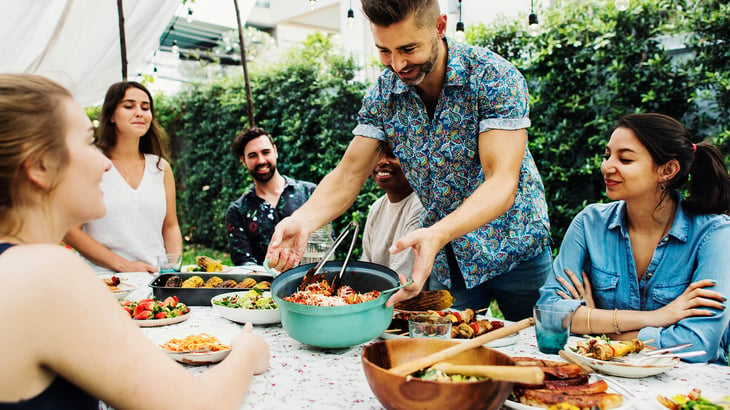Recent Posts by Hannah Hansen
6 Tips for Organizing Your Church Office
Organization in the church office isn’t just about optics. Having streamlined processes makes things easier for your team and supports your church’s mission as a whole. Have you thought about ways you can do this?
Wrangle Church Events in 5 Simple Steps
Planning church events is no small feat—whether you’re organizing a bake sale, fundraiser, rummage sale, community event, food drive, or holiday celebration, there’s a lot that goes into putting on a successful event.
Prepare, Communicate, Serve: Getting Your Church Office Ready for Lent
Lent is a busy time for church offices—there are double the services each week, pre-service dinners before midweek services, and, of course, Easter Sunday after the end of Lent! Oftentimes, church workers can forsake their own Lenten reflections because of the busyness of the season.
How Christians Can Respond to Cancel Culture
Cancel culture is a hot topic right now. It seems like a celebrity is being “canceled” each day for many things: actions, words said, pictures posted. The following is a post in dialogue with a section on cancel culture in Redeeming Technology: A Christian Approach to Healthy Digital Habits.
Staying Content during the Holiday Season
Every year as Christmas approaches, I find myself making wish lists—clothing, makeup, housewares, you name it. My Instagram feed is filled with ads for products that would make great additions to my closet or jewelry box.
I lean toward materialistic tendencies anyway (I’m working on it!), but during this time of year, I definitely lean even more towards wanting more, more, more.
How to Build Christian Community as Young Adults
One of the hardest parts of being a young adult is building Christian community. Whether you live in your hometown and are trying to find new friends since your hometown friends have left, or whether you have moved to a new city and are trying to find a new group of friends, you probably have felt the struggles of building a community of friends.
Combating Work Burnout with God's Word
For the past year or so, many people have experienced burnout at their jobs. Whether you work in an office, at home, or in ministry, you’ve likely felt the pressure. Many people had to work longer hours and adjusted to working at home—and the combination of all these factors has led to a collective burnout.
Faith Lessons I’ve Learned from Running
I’ve been running for the past five years or so, and while I wouldn’t consider myself a professional by any means, I like to think I’ve learned a thing or two over the past few years—like how to stabilize my breathing and how to run at a steady pace. Similarly, in the Christian life, we have many lessons to learn. I like to think that a lot of the lessons I’ve learned in running apply to the Christian life as well.
Lessons from the First Year of Marriage
I’m coming up on one year of marriage and let me tell you—it has been great, but it’s also been hard. We got married during a global pandemic and spent almost our entire first year of marriage in our one-bedroom apartment. We were both working from home and quarantined from friends and family for quite some time, so we were together quite literally all. the. time. There were definite blessings to this—when else would we have gotten to spend this much time together?—but it definitely tested our brand-new marriage.
Three God-Given Ways to Support Your Mental Health this Summer
I’m so glad it’s summer.
There are many reasons for this—sunshine! patio dining! sundresses! But the number one reason is that it’s simply not winter.




















